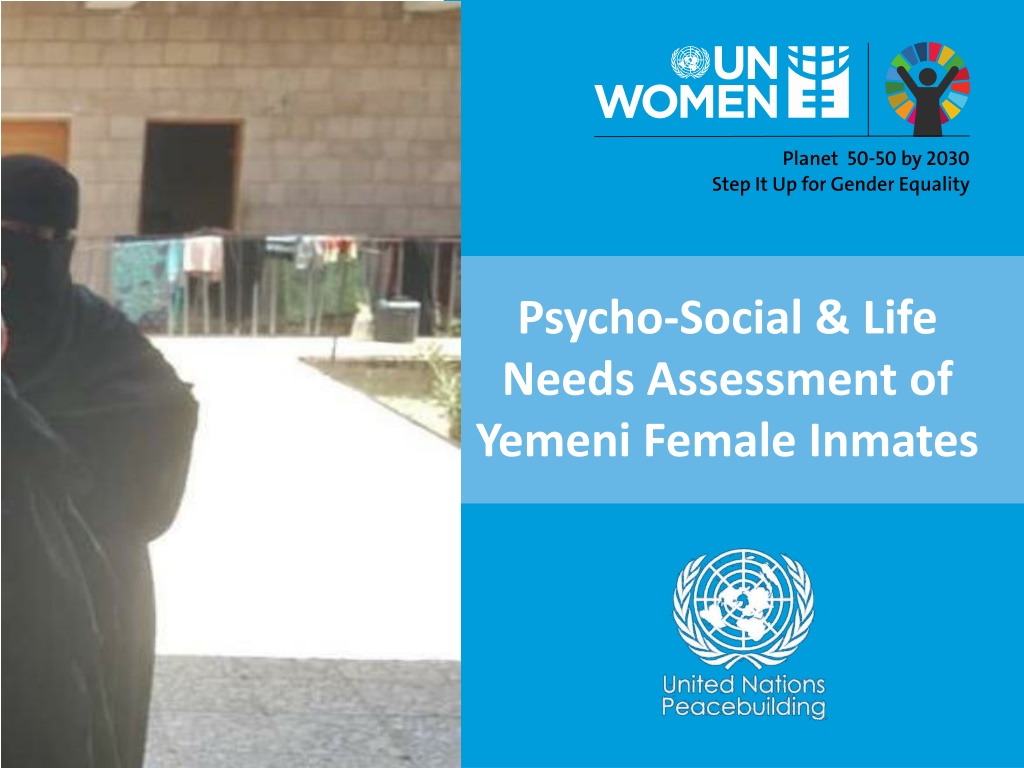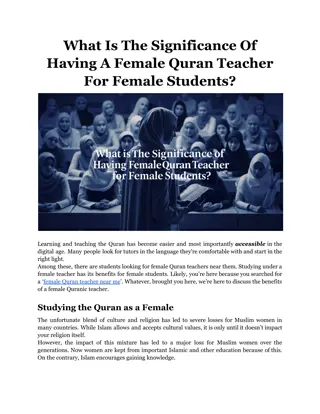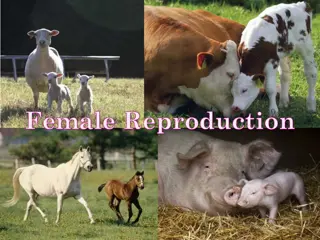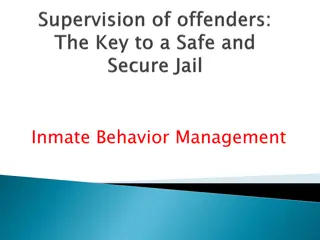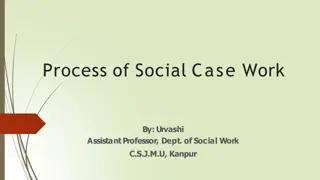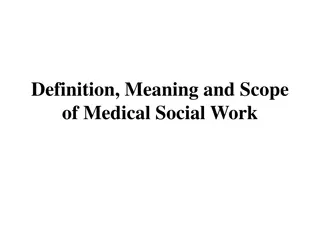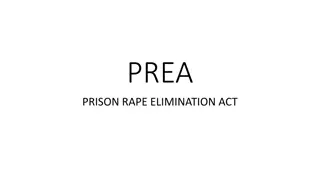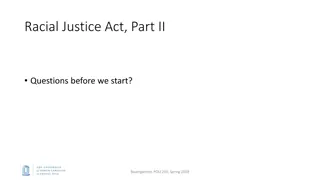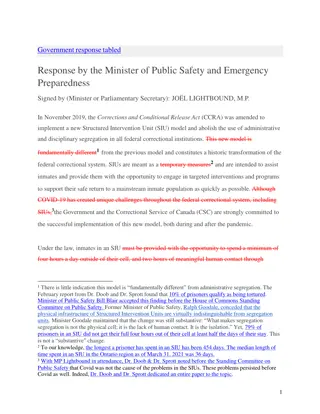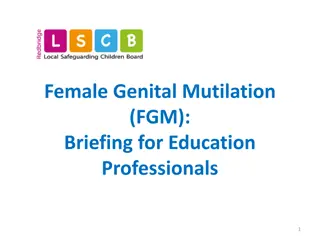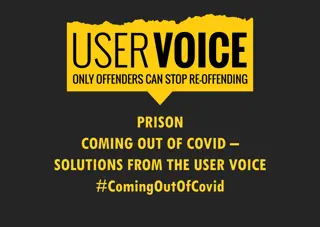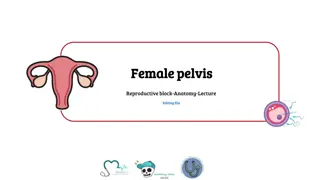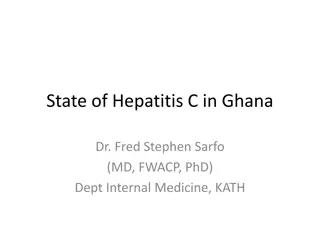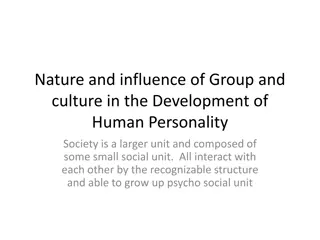Psycho-Social & Life Needs Assessment of Yemeni Female Inmates
Conducted in partnership with FCDF, the assessment survey aimed to identify the psycho-social needs of female inmates in Yemeni prisons. Findings revealed critical areas such as physiological, safety, social belonging, and self-esteem needs. The data highlighted the prevalence of concerns related to hygiene products, healthcare, clothing, safety, and security issues among the participants. Key indicators emphasize the urgency for tailored interventions to address these pressing needs.
Download Presentation

Please find below an Image/Link to download the presentation.
The content on the website is provided AS IS for your information and personal use only. It may not be sold, licensed, or shared on other websites without obtaining consent from the author. Download presentation by click this link. If you encounter any issues during the download, it is possible that the publisher has removed the file from their server.
E N D
Presentation Transcript
Psycho-Social & Life Needs Assessment of Yemeni Female Inmates
1. Assessment & Detainee Profiles In partnership with Family Counseling and Development Foundation (FCDF), the psycho-social assessment survey was designed to identify the needs of women in detention including: Physiological needs Safety needs Social belonging Self esteem Psychological disorders
Target Population Female prisoners in: Al-Amanah Central Prison Sana a Ibb Central Prison Dhamar Prison Al-Mansoura Rehabilitation Centre - Aden Mukalla Rehabilitation Centre Only 43 women agreed to participate in the psychological and life needs assessment. A sample of 29% from the total of 148 female prisoners in the five facilities.
Detainee Ages 48+ YEARS 2% 37-47 YEARS 9% 26-36 YEARS 37% 18-26 YEARS 51% 0% 10% 20% 30% 40% 50% 60%
Detainee Marital Status Single, 12% Married, 42% Divorced/Widowed, 44%
Detainee Education Basic Education 42.5% No Education 32.5% Secondary Education 17.5% University Education 7.5%
Duration of Sentence 1-5 years 48% Less than 1 year 30% 6 years + 22%
2. Survey Results The survey data was collected and analyzed by a team of psychologists. This section presents highlights and key indicators to showcase priority interventions and services needed by female prisoners.
Physiological Needs Percentage of Respondents HYGIENE PRODUCTS 79% HEALTHCARE 71% CLOTHING AND BEDDING 70% CLEANER WATER 52% HEALTHIER FOOD 52%
Safety and Security Needs Percentage of Respondents Survey Statement Lack of money is something I worry about. 75% I have a fear of the future. 74% No one to go to when I need any help. 74% I need my family to make me feel safe. 72% I fear for the safety of my children in prison. 30% I do not feel secure in prison. 21% I'm being blackmailed and exploited. 17% There is a threat to my safety. 16%
Education and Training Needs 81% of respondents do not have skill or craft to enable them to work after release. 74% do not know how to take good care of their health. 72% indicated they need some level of help to improve their reading and writing skills. 72% showed interest in continuing their interrupted education.
Need for Community Support 98% 53% 51% 37% Abandonment by Family No support from prisoners Receive no visitors Feel social stigma
Need for Psychotherapy Analysis of results indicate signs of the following symptoms among female prisoners: Depression Hypomania Panic attacks and anxiety Suicidal thoughts Early signs of Schizophrenia Early symptoms of Dementia Obsessive compulsive disorder Dissociative disorder
Need for Life Skills Results indicate that female inmates would benefit from trainings to improve: Self-confidence Communication skills Problem solving skills Self-defense skills Dealing with life pressures
Other Indicators Results also indicate that the majority of female prisoners have: Low levels of self-respect, self-esteem, and self- confidence Lacking self-assertiveness Absence of feeling of belonging to a group, community or family Strong need to occupy time with activities
Recommendations & Priorities Essentials hygiene products, food, water, healthcare, clothing, bedding. Education and vocational training programs. Mentoring program to raise self-confidence & life skills. Work with families to raise detainee social support. Re-integration support including small grants for income generating projects. Counseling and psychotherapy programs. Entertainment activities sports, reading materials, and channels to communicate with their families.
